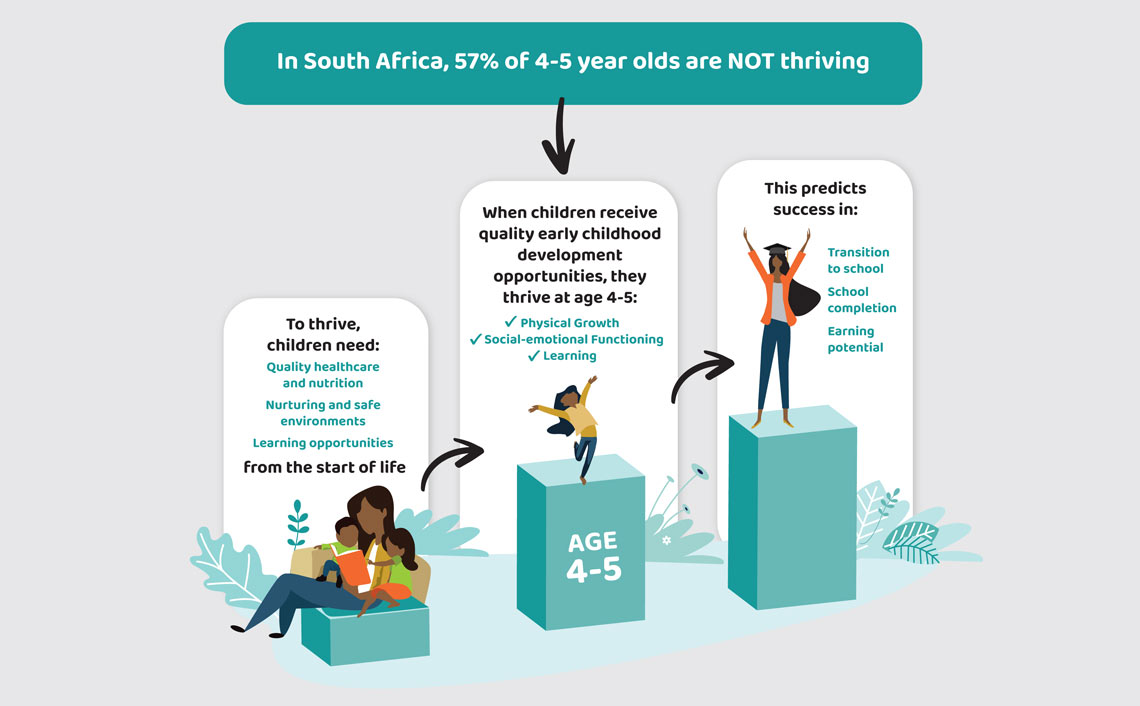Why Invest in Early Childhood
Investing in early childhood is essential to creating an inclusive economy and a fair, more equal society.
The neurological foundation for lifelong learning is developed during the first five years of life, the time when the brain grows fastest and is most responsive to care,experiences, and environment.
Children who are nourished, nurtured and have learning opportunities in their earliest years are more likely to start school physically and cognitively On Track and to realise their full potential.
The early learning advantage
Research reviewed for the Thrive by Five Index has consistently found that early language and mathematics skills, cognition and executive functioning, fine motor coordination and visual-motor integration at 4-5 years of age are predictive of children’s performance in the foundation phase of schooling and beyond. Social and emotional functioning are predictive of adjustment to school and achievements in the primary phase.
Good quality early learning provision has the potential to play a major role in promoting development in all preschool children, particularly those from poor households.
The South African context
Massive inequalities exist in South Africa when it comes to children’s experiences in the first five years of life. An estimated two-thirds of 4-5-year-olds live below the poverty line, with less access to health care, nutrition and quality Early Learning Programmes (ELPs). These multiple risk factors mean that South Africa’s poor children are falling behind before they even enter a school classroom.
The Index found that between the ages of 4-5 years, being moderately stunted is roughly equivalent to being 5-6 months behind children with normal height-for-age, all other things being equal. The study found that even mildly stunted children show signs of learning deficits. Almost one in five children in the Index showed signs of mild stunting. These children are approximately 2.4 months behind children in normal growth, all other things being equal.
Early life experiences create barriers to success for poor children, ultimately reducing their employment prospects and reinforcing intergenerational cycles of poverty and exclusion. It is inconceivable that South Africa can realise its development goals of eliminating poverty and reducing inequality, without addressing the significant challenges that that children face in their earliest years.


